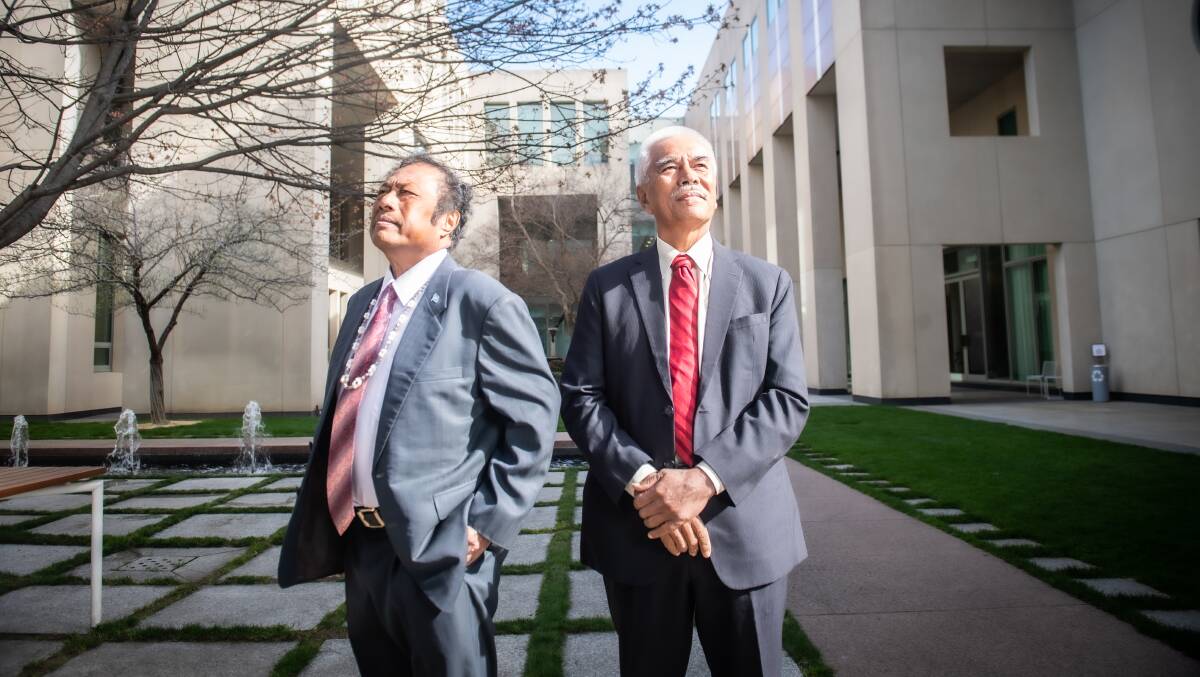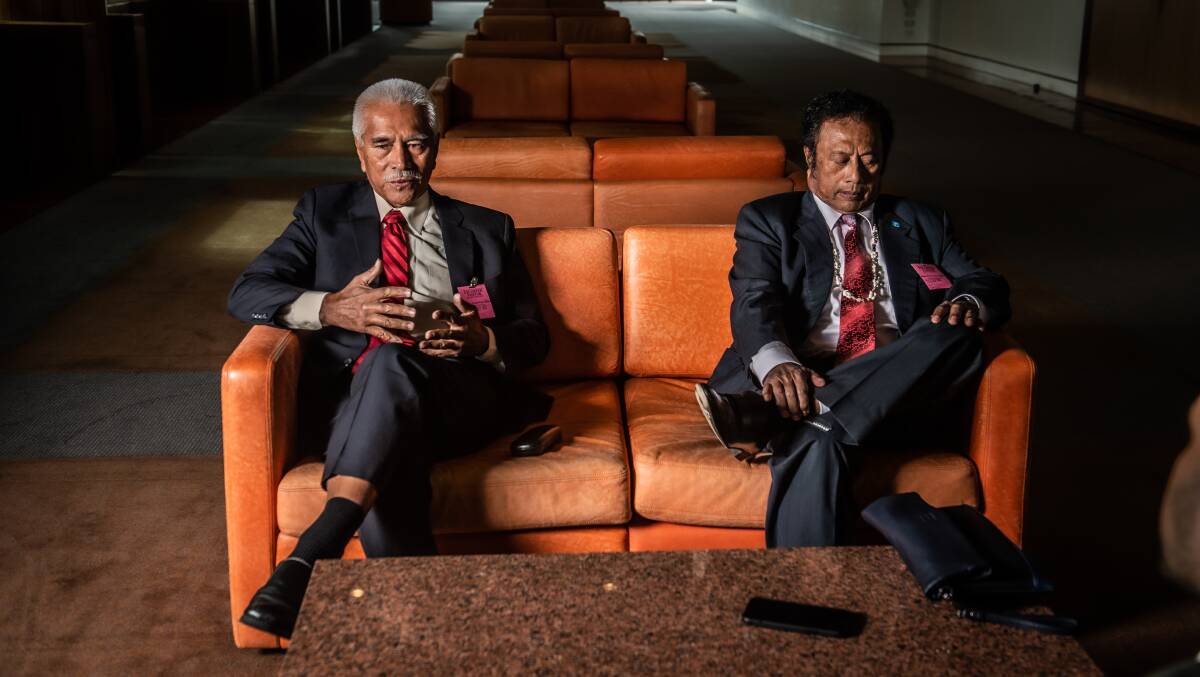
Former Pacific Island nation presidents have challenged the Albanese government to "walk the talk" on climate action and start phasing out of the fossil fuels which threaten the future of their region.
Subscribe now for unlimited access.
$0/
(min cost $0)
or signup to continue reading
Anote Tong, the former president of Kiribati, said Pacific nations would be questioning how serious the new Australian government was about tackling global warming when new coal and gas projects were allowed to be approved on its shores.
He also said it would be "contradictory" for Australia to co-host a UN climate change summit with Pacific nations - which it hopes to do in 2024 - unless it changed its stance.
Mr Tong and the former president of Palau, Thomas Remengesau Jr, are using a visit to Canberra to turn up the pressure on the Australian government over its climate policies.
The pair are members of the Pacific Elders' Voice, an independent group which includes former presidents and prime ministers from the region.
Australia's promise to take stronger action on global warming under the new Labor government has been welcomed across the Pacific, where rising global temperatures are considered the greatest economic, environmental and security threat.
But Pacific leaders are already pushing the Albanese government to go further, with Fijian Prime Minister Frank Bainimarama urging Australia and other major economies to end their "fossil fuel addictions".
Mr Tong and Mr Remengesau Jr echoed those sentiments in an exclusive interview with ACM at Parliament House on Monday.

Mr Remengesau Jr, who served as Palau's president from 2013 until 2021, said the Australian government's freshly legislated 43 per cent 2030 emissions reduction target was a "welcome start".
The target is higher than the 26-28 per cent goal set under the former Coalition regime.
However, Mr Remengesau Jr said Labor's target was still not consistent with the level of emissions cuts required globally in order to limit warming to 1.5 degrees of pre-industrial levels.
Mr Tong took aim at Australia's stance on fossil fuels, saying there was a "definite contradiction" between the federal government's ambition to reach net zero emissions by 2050 and its refusal to put a moratorium on new coal and gas developments.
He said the government must start taking responsibility for the pollution from its fossil fuel exports, which aren't counted against Australia's emissions total but still contribute to the global carbon footprint.
"I think it's very clear that we must walk the talk if we are serious about doing something about averting the disaster that we are facing," he said.
"They must be really genuine effective measures, and simply counting your domestic emissions and conveniently neglecting .. the emissions from your exports doesn't seem genuine to me."
As part of attempts to rebuild Australia's international reputation on climate action, which eroded under the Coalition, the Labor government is planning to bid to host the 2024 UN climate summit in partnership with Pacific nations.
Mr Tong said hosting the summit, known as the COP, would be an important demonstration of Australia's leadership on climate action.
But he argued Pacific nations would question how sincere Australia's commitment was if new fossil fuel projects continued to be given the green light.
"It's not about hosting the COP that is important, it's about saving our homes for future generations - that's the bottom line," he said.
"I would be hesitant to support something like that [hosting a COP] if Australia on the one hand offers to do that, but at the same time is opening new coal mines which we know with absolute certainty is detrimental to the existence of our people."
ACM invited Minister for International Development the Pacific Pat Conroy to respond to the pair's comments. He declined to comment, as the government avoids weighing into political debate in the immediate aftermath of the Queen's death.
In addition to its domestic climate action policies, Labor has promised to create a fund to help finance climate-related infrastructure projects in the Pacific and Timor-Leste.


